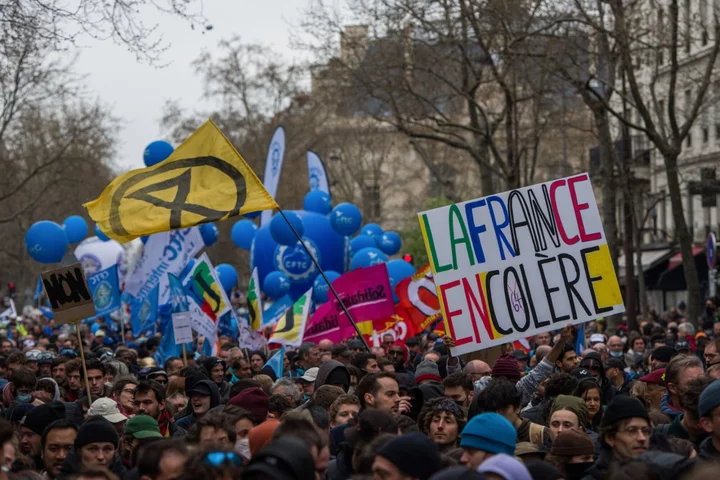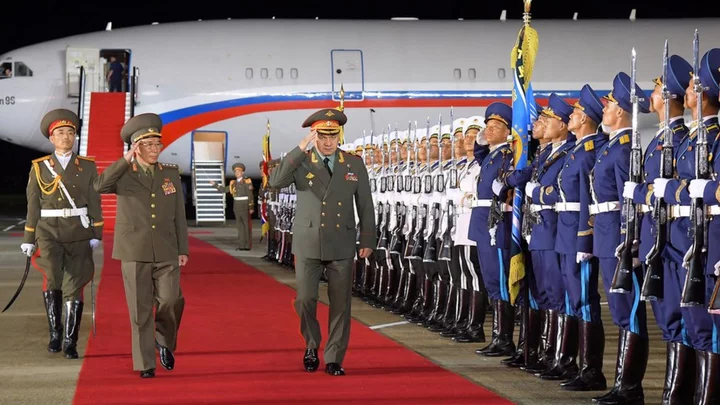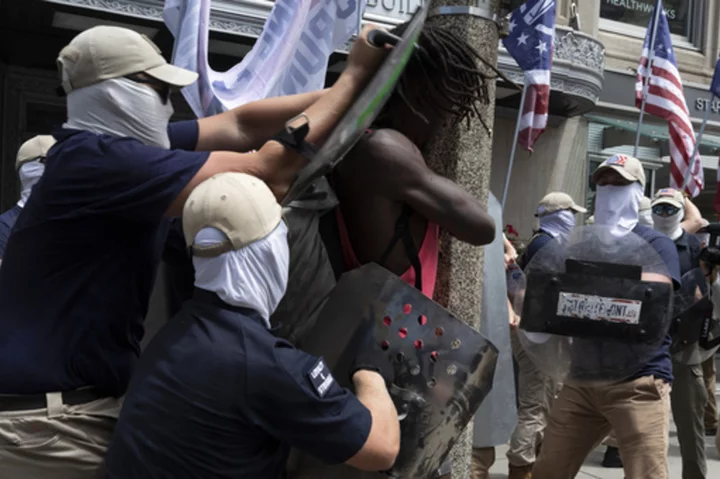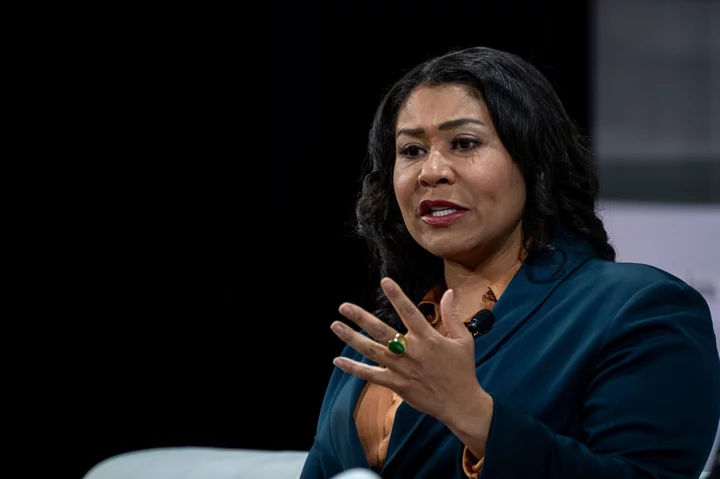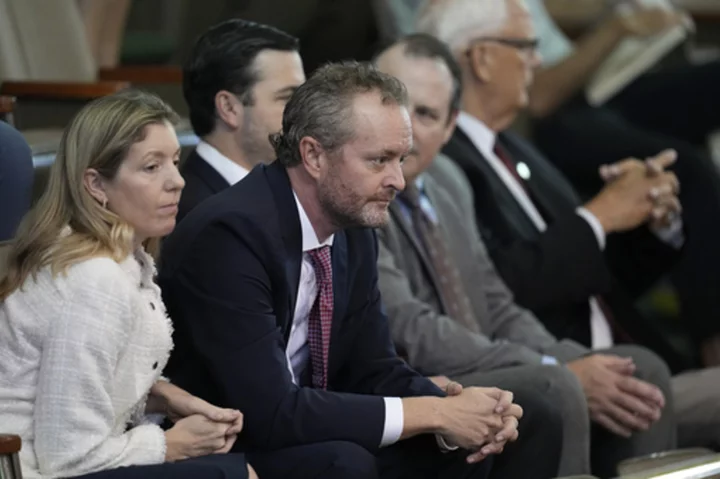The police were staked out. The second hand swept 12. Allez — go!
Two squads descended near the Opera Garnier. Another struck by the Arc de Triomphe. A fourth converged across the Seine, on the Left Bank. And a fifth swarmed La Defense, the business district to the west.
The marks: five major banks, all of them suspected of being involved in what is perhaps the greatest tax heist in the history of France.
On the scene that Tuesday was Claire Le Maner, a lead investigator in the hunt — and a figure who might bring to mind Hitchcock’s “To Catch a Thief.”
To catch a financier, it turns out, just might take a financier.
Le Maner is a prosecutor at the young Parquet National Financier, or National Financial Prosecution Office. But the meticulously choreographed raids on March 28 — a maneuver French authorities have characterized as unprecedented in scale and scope — placed her on oddly familiar turf.
Before joining the elite PNF last year, Le Maner spent a decade in fixed income at HSBC — one of the very banks now under scrutiny. Before that, she did a brief stint in emerging-markets sales at Citigroup Inc. (Le Maner has asked not to be involved in the investigation concerning HSBC to avoid conflicts of interest and Citigroup isn’t a target).
Soon the PNF came calling. In her, the authorities saw a rare combination of skills: top legal training, coupled with financial expertise.
“That’s what prompted me to hire her and designate her as lead in this investigation,” Jean-François Bohnert, the PNF boss, told Bloomberg. “Within the PNF bunch we all have an economic and financial specialization but none quite as sharp.”Unlike in the US, prosecutors in France don't typically move in and out of private practice, let alone come from or go to the banking sector.
Founded in 2014 to tackle complex financial crimes, the PNF has looked into organizations as varied as Airbus SE and the 2023 Rugby World Cup. Headed by Bohnert, a former senior prosecutor in the cities of Dijon, Rouen and Reims and, at one point, a contender to become the first European Chief Prosecutor (that job eventually went to Laura Codruța Kövesi of Romania).
As is customary in open investigations, the PNF declined to speak of the substance of the allegations for this story, as did representatives for the five banks, BNP Paribas SA and its Exane SA unit; HSBC Continental Europe (formerly HSBC France SA); Natixis SA; and Societe Generale SA. Before this is over, others could be caught up in the net too.
The tax affair in France and an even more sweeping one in Germany have been grinding on for years. Now, authorities want justice.
Across Europe, major international banks have been ensnared in trading strategies involving taxes on stock dividends. One is known as Cum-Ex, Latin for “with-without.” The other is “Cum-Cum,” or “with-with.” These globe-spanning maneuvers, often structured in London, siphoned billions from national treasuries. Worldwide, they’ve cost taxpayers an estimated €150 billion, including €36 billion in Germany and €33.4 billion in France.
On that crisp March morning, 160 judicial police – officers responsible for investigating financial crimes, rather than the typical ones walking beats — poured into Paris from across France. The mission had been kept so secret that some of them didn’t even know why they’d been summoned or where exactly they were going.
Paris that day was piled high with garbage, the result of a strike by trash collectors to plans to raise the pension age. Even as thousands of ordinary people poured into the streets to join in the protest, the PNF concluded that its operation was too important to delay. The team had been planning this for six months. “Postponing was out of the question,” Bohnert said.
The judicial police and prosecutors synchronized their watches and took out encrypted phones.
At each bank, investigators moved in time: Arrive at precisely at 9 o’clock, present warrants, march to the C-suite — and then fan out to specific, previously identified divisions. The PNF deployed 16 of its 19 prosecutors to gather evidence.
And so Le Maner and the team have begun to pierce the inner-most sanctums of French finance. They’ve scrutinized floor plans. Pinpointed specific departments. Identified possible suspects.
Warrants in hand, they’ve riffled through desk drawers, peered into closets and even checked basements. They’ve effectively dusted computer servers for digital fingerprints, seized printed documents and handwritten notes.
“Some must’ve regretted not applying a clean desk policy,” a person who was present that day said of some bank employees.
Authorities even searched bins. “It’s not because we’re in the digital era that old school investigative tools shouldn’t be used,” Bohnert said.
And, as if to add an exclamation point, the PNF has placed the banks on notice: Cooperate, or face consequences. At one point, a prosecutor gave one of the banks an hour to grant investigators access to a server outside France or be branded as obstructionist.
It’s expected to take months sort through all the emails, online chats and paperwork. The banks are pushing back, arguing that some of the material is privileged or not pertinent to the investigation. To get a head start, investigators can commence listening in to traders' recorded phone calls but with some of the tax cases going back nearly a decade, the time period is vast.
The raids hit French finance like a freight train. Executives and traders alike appear to have been caught off-guard, even though French banks have curbed dubious “Cum-Cum” trades since prosecutors began closing in. The banks apparently never thought the PNF would attempt an operation on this scale. One lawyer in Paris received calls that Tuesday from three different banks looking for legal advice.
Privately, bank executives and traders say they’re sweating over what the PNF will turn up.
Little by little, the extent of the operation is coming into focus, and the picture isn’t pretty. French authorities already have asked banks to pay €2.5 billion in back taxes. With the start of the PNF’s criminal investigation, the bill is unlikely to end there.
The PNF appears to have the bit between its teeth. German and French prosecutors have been sharing tips and comparing notes. It helps that Bohnert once served as a liaison magistrate to Germany in Bonn and Berlin. Prosecutors in Cologne, who have been raiding banks in Germany and elsewhere, have been particularly helpful.
So close is the cooperation that six German prosecutors traveled to Paris and were on the ground for the March raids. Among them: Anne Brorhilker, who’s hunt has made her one of the most feared figures in European finance.
The PNF for its part has made a name for itself with big-ticket settlements: the Airbus case ended with France collecting a €2.1 billion fine and McDonald’s Corp. ended a tax case in 2022 with a €1.25 billion payment.
As authorities descended on the French banks’ headquarters, executives and rank-and-file employees alike were predictably shaken. As the hours passed, some wondered if they’d be allowed to leave that day at all.
One of the banks had booked tickets for employees and clients to see a ballet at the nearby Opera Garnier. Finally given an all-clear by investigators, one banker grabbed his things and rushed over.
The show that evening: “Pit,” choreographed by Bobbi Jene Smith and Or Schraider, and set to Jean Sibelius’s Violin Concerto.
The choice was apt. The cast, dressed for a glamorous cocktail party, dance slowly before launching into tormented pas de deux — not unlike French bankers and the prosecutors of the PNF.
--With assistance from Alexandre Rajbhandari.

